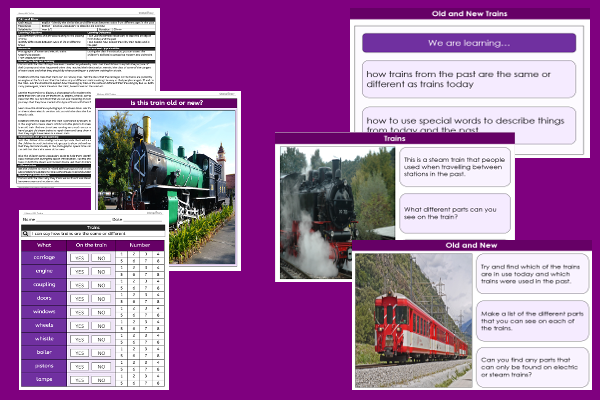Home > Key Stage One > History > Trains
Lesson One – Trains Old and New

This history teaching pack for Key Stage One gets the children to identify and record some of the similarities and differences that can be seen between trains from different ages in the past.
The class can name and locate some of the different parts that can be found on a train and compare whether they can be seen on modern trains from today or steam trains from the past.
Download this teaching pack including a lesson plan, classroom activities and an interactive presentation to identify and record some of the similarities and differences that can be seen between trains from different ages in the past
Activities in this teaching pack include display posters to identify and describe the construction and operation of modern and old trains and a worksheet identify and record some of the different parts that can be found on either modern or old trains.
The interactive presentation can be used to explore and record and record the similarities and differences between trains from different ages in the past.
This lesson is part of a history scheme of work to get the children to explore and illustrate how travel has changed since the past through the invention and development of trains from steam to electric technologies. There are teaching activities for shared learning, differentiated worksheets to support independent learning and interactive presentations to introduce concepts and key skills.
-

Money Coin Sums
Practise identifying, combining and recording sets of coins that can make matching sums that can be used when shopping for different products
-

Maths Number Assessment
Assess abilities in working with numbers to solve abstract and contextual problems when calculating sums, products and quotients using different techniques and methods
-

Animal Lists
Investigate how to compile lists using commas to present information about some of the special animals that live in habitats around the world
-

English Spelling Assessment
Assess abilities in spelling different vocabulary words based on the National Curriculum programmes of study for Key Stage One
